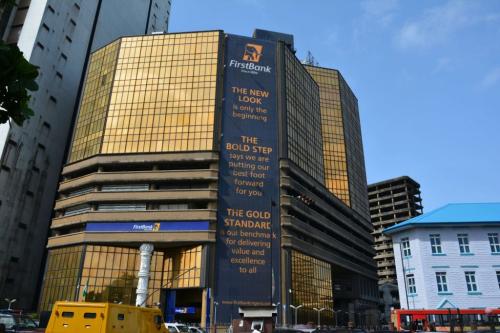
It is often difficult to manage your finances effectively without understanding certain details about financial procedures, such as the First Bank Sort Code. The simple but essential six-digit code ensures that your financial transactions in Nigeria are processed securely and accurately by First Bank. You’ll be better able to manage your financial operations with confidence and ease by understanding sort codes.
Our guide provides you with an explanation of First Bank’s sort code and a practical method for locating and confirming it.
Key Takeaways
-
Sort Code Basics: Sort codes are six-digit identifiers assigned to specific First Bank branches in Nigeria.
-
Importance: These codes ensure smooth, accurate fund transfers and financial transactions.
-
Security: Always verify sort codes to prevent fraud and ensure secure transactions.
-
Branch Specificity: Each branch has its own unique sort code for efficient routing and transaction processing.
Understanding the Structure of First Bank Sort Codes
In addition to being just a series of numbers, sort codes play a crucial role in identifying the particular bank branch where an account is held. Within the network of First Bank in Nigeria, the sort code is a unique six-digit number that helps route transactions accurately.
Here’s how the structure of the sort code works:
- First Four Digits: These represent the specific bank (in this case, First Bank).
- Last Two Digits: These identify the particular branch of that bank.
First Bank’s sort code ensures, for example, that your transaction reaches the correct branch without delay or error. It will help you avoid unnecessary mistakes and streamline your banking process if you master this structure.
Why First Bank Sort Codes Matter
The First Bank sort code is crucial for several reasons:
- Internal Transfers: It ensures efficient routing of funds within First Bank’s network, reducing the likelihood of delays or errors.
- Interbank Transfers: When transferring funds between First Bank and another bank in Nigeria, the correct sort code ensures that the money reaches the intended destination without complications.
- Fraud Prevention: Correctly identifying the sort code adds an extra layer of security to your transactions, making it harder for fraudulent activities to occur.
How to Find Your First Bank Sort Code
If you’re wondering where to find your First Bank sort code, the process is straightforward:
- Check Your Account Statement: The sort code is usually listed alongside your account number on bank statements.
- Visit First Bank’s Official Website: Many branches list their sort codes online for easy access.
- Contact Customer Service: If you’re still unsure, reach out to First Bank’s customer service for confirmation.
For example, the sort code for First Bank’s head office in Lagos is 011151003. Each branch has its own unique code, so it’s essential to use the correct one for your specific transactions.
Verifying First Bank Sort Codes for Security
Before making any transfers, it’s vital to verify the sort code you have. Here are some steps to ensure you’re using the correct and secure code:
- Double-Check the Code: Verify that the sort code matches the one officially assigned to the branch you’re working with.
- Use Trusted Sources: Always check sort codes through reliable sources like First Bank’s official website or by contacting the bank directly.
- Avoid Sharing: To protect your financial transactions, do not share your sort code with unauthorized parties.
These precautions can help prevent errors and reduce the risk of fraudulent transactions.
Preventing Fraud with First Bank Sort Codes
Simple yet effective fraud prevention comes from using the correct sort code. In each First Bank branch, a unique code distinguishes legitimate transactions from potentially fraudulent ones. Adding an extra layer of security to your financial transactions is as simple as verifying the sort code before transferring funds.
It is important to implement these security measures to reduce the risk of unauthorized access to your funds.
Frequently Asked Questions
What Does a Bank Sort Code Tell You?
A sort code identifies the specific branch of a bank where an account is held. For First Bank in Nigeria, over 300 unique sort codes exist, each corresponding to a different branch.
What is the sort code for First Bank?
Each First Bank branch in Nigeria has its own unique sort code. For example, the sort code for First Bank’s head office in Lagos is 011151003. Using the correct code ensures that your financial transactions are processed smoothly.
Is a bank sort code the same as a routing number?
No, a bank sort code is specific to banking systems in countries like Nigeria and the UK. A routing number is used in the US banking system. While both serve similar purposes, they are not interchangeable.
Do You Need a Sort Code for an International Transfer?
Yes, for domestic transactions within a country’s banking system, a sort code is required. However, for international transfers, you will typically need to use SWIFT codes or IBAN numbers instead of sort codes.
Conclusion
First Bank’s sort code is essential to the smooth and secure handling of your financial transactions. It is important to understand the structure, importance, and proper methods of verification.
Always ensure that your sort codes are accurate before making transfers, and keep your information secure.

